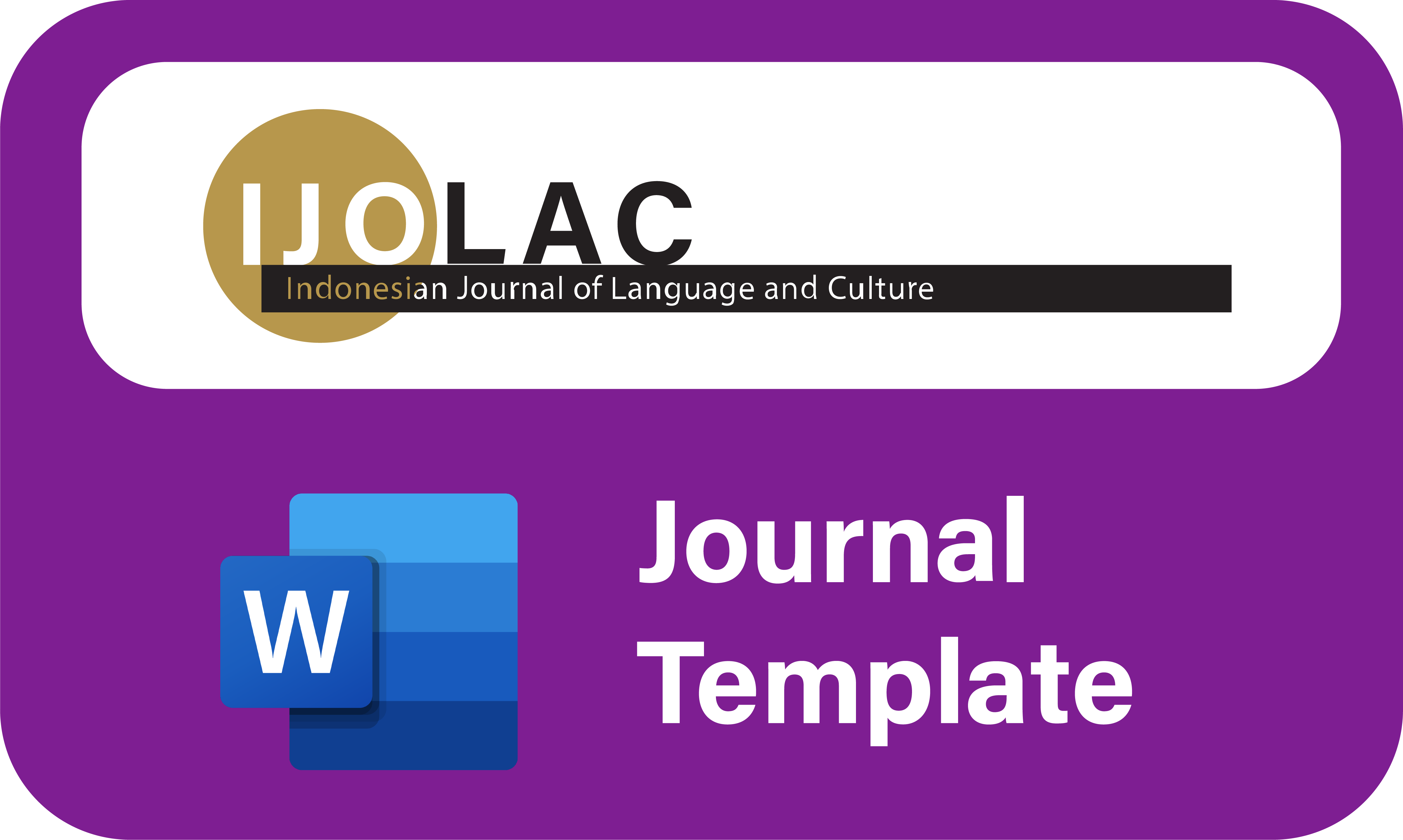Focus and Scope
Indonesian Journal of Language and Culture seeks to publish high-quality research papers, review articles, and book reviews that make a contribution to knowledge through the application and development of theories, new data exploration, and/or scientific analysis of salient policy issues; representing advances and fresh studies in the fields of language and culture. The Scope of the Indonesian Journal of Language and Culture (IJOLAC) includes the following areas: Language and Literacy Studies: Children's literacy, Language Acquisition, Language policy, Corpus linguistics, Psycholinguistics, Language descriptions, Language preservation, Local language, Etymology, Philology, Language and Gender Studies, Discourse Studies. Culture and Literature Studies: Film studies, Children literature in Globalization Era, Digital humanities, Global and Local in Modern Era, Folklore, Gender and literature studies, Literature and art studies, Popular Culture.
Education: Applications and Integration of Education, Assertive and Assistive Educational Technology, AV-communication and other media, Blended Learning, Collaborative on-line Learning, Education History, Education Science, Educational Development, Educational Theory, E-leaning: Academic Participation and Freedom, E-Learning Effectiveness and Outcomes, E-learning Evaluation and Content, Knowledge Management, Psychology Education, Education Management, Teacher Professional Development, Teaching and Training, Assessment, Teaching and Learning, Curriculum and Material Development, Intercultural Education, Teaching Language for Young Learners, Technology-related studies in language teaching and learning, Teaching media, CALL, MALL, Digital Literacy.
Language and Literacy Studies: Children's literacy, Language Acquisition, Language policy, Corpus linguistics, Psycholinguistics, Language descriptions, Language preservation, Local language, Etymology, Philology, Language and gender studies, Discourse Studies.
Culture and Literature Studies: Film studies, Children literature in Globalization Era, Digital humanities, Global and Local in Modern Era, Folklore, Gender and literature studies, Literature and art studies, Popular Culture.


